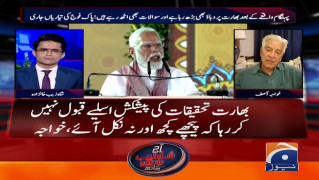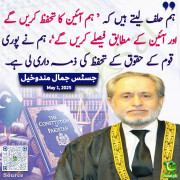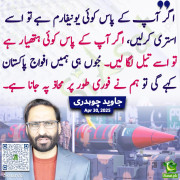jigrot
Minister (2k+ posts)
In the complex chessboard of global geopolitics, Pakistan has often found itself caught in the crossfire of foreign interests. While publicly praised as a strategic ally or key regional partner, behind closed doors, international players have used Pakistan as a pawn to advance their own agendas. This manipulation has often been facilitated not just externally, but internally, through compromised leadership, political interference, and, most notably, the co-opting of segments within the military elite. The result is a nation burdened with the consequences of decisions made for the benefit of others. While its people face economic hardship, social instability, and loss of life.
One of the most troubling aspects of this dynamic is how Pakistan's own system has been infiltrated and manipulated. Historically, foreign powers have used influence, aid, and diplomatic leverage to shape Pakistan’s internal decision-making. In particular, some army generals tasked with safeguarding national sovereignty have allegedly acted in alignment with external powers, compromising long-term national interests in favor of short-term political or financial gains. These compromises often come under the guise of strategic partnerships or national security arrangements, but they frequently leave Pakistan weaker, more dependent, and less respected globally.
This pattern of exploitation has occurred across different eras from Cold War alliances to the post-9/11 global "War on Terror." In each case, Pakistan has offered its land, infrastructure, and resources to serve foreign military and intelligence operations. In return, it has received conditional aid, debt traps, and, worse, public blame for regional instability. This duplicity where global powers use Pakistan’s cooperation while simultaneously tarnishing its image reveals the harsh truth that friendship in international relations is often transactional and interest-driven.
Unfortunately, the price of this exploitation is paid not by those in power, but by ordinary Pakistanis. Young people face a broken job market, where opportunities are scarce due to economic mismanagement and a lack of sustained investment in human capital. Regions once rich in culture and commerce have become battlegrounds in geopolitical conflicts. Families suffer the consequences of terrorism, sectarian violence, and drone warfare none of which originated from grassroots Pakistani causes, but from decisions imposed or encouraged by external forces.
In conclusion, Pakistan stands at a critical crossroads. The time has come to break the cycle of dependency and proxy politics that have undermined its sovereignty and burdened its people. By embracing transparency, national self-reliance, and institutional integrity, Pakistan can reclaim its voice on the world stage not as a client state or scapegoat, but as a proud, independent nation driven by the aspirations of its own people.
One of the most troubling aspects of this dynamic is how Pakistan's own system has been infiltrated and manipulated. Historically, foreign powers have used influence, aid, and diplomatic leverage to shape Pakistan’s internal decision-making. In particular, some army generals tasked with safeguarding national sovereignty have allegedly acted in alignment with external powers, compromising long-term national interests in favor of short-term political or financial gains. These compromises often come under the guise of strategic partnerships or national security arrangements, but they frequently leave Pakistan weaker, more dependent, and less respected globally.
This pattern of exploitation has occurred across different eras from Cold War alliances to the post-9/11 global "War on Terror." In each case, Pakistan has offered its land, infrastructure, and resources to serve foreign military and intelligence operations. In return, it has received conditional aid, debt traps, and, worse, public blame for regional instability. This duplicity where global powers use Pakistan’s cooperation while simultaneously tarnishing its image reveals the harsh truth that friendship in international relations is often transactional and interest-driven.
Unfortunately, the price of this exploitation is paid not by those in power, but by ordinary Pakistanis. Young people face a broken job market, where opportunities are scarce due to economic mismanagement and a lack of sustained investment in human capital. Regions once rich in culture and commerce have become battlegrounds in geopolitical conflicts. Families suffer the consequences of terrorism, sectarian violence, and drone warfare none of which originated from grassroots Pakistani causes, but from decisions imposed or encouraged by external forces.
In conclusion, Pakistan stands at a critical crossroads. The time has come to break the cycle of dependency and proxy politics that have undermined its sovereignty and burdened its people. By embracing transparency, national self-reliance, and institutional integrity, Pakistan can reclaim its voice on the world stage not as a client state or scapegoat, but as a proud, independent nation driven by the aspirations of its own people.




























